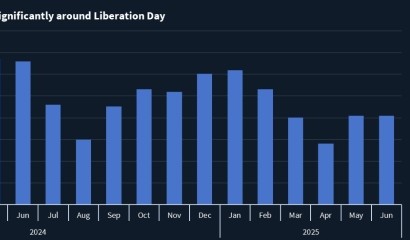IPO? No: Europe’s new listing pipe shrinks as sponsors increase firepower and swoop for pipeline assets
Is this the way Europe’s 2024 IPO year ends? Not with a bang but with a whimper.
Everyone in equity capital markets, including ECM Pulse, hopes not, but a string of IPO failures pre-summer and a hollowing out of the post-summer calendar is cause for concern, especially as private equity starts to stretch its muscles again.
A blockbuster pipeline has slowly been whittled down, as some sellers move closer to private exit solutions for their assets.
Three ECM bankers noted that they now only expect a handful of deals after the summer. Several sources pointed to an IPO of Springer Nature in Germany as perhaps the landmark deal in 2H.
There is also some momentum around the listings of Zabka Polska in Warsaw, Cirsa Gaming in Spain and Applied Nutrition in the UK.
There will be some other deals across Europe, the Middle East and Africa (EMEA), including the possible IPO of discount retailer Boxer in South Africa; and sources said that there could also be pockets of activity in the Nordics and the Middle East.
Even so, there will likely only be a small single-digit number of IPOs in Western Europe. An ECM investor confirmed that there was a little more than a handful of IPOs he expected in the second half of the year.
All the deals that are scheduled for after summer, are also dependent on market conditions.
With a historic and possibly turbulent US election scheduled for early November, anything that is not ready for launch in September is running the risk of investors being spooked out of participating in a deal, should the presidential election send markets downward.
An assassination attempt on former president Donald Trump, the presumptive Republican nominee for president, over the weekend points to a febrile political atmosphere in the US that could filter through to global stock markets.
Sponsors taking IPOs off the table
Part of the reason for the diminishment of Europe’s public market debutants is a rise in sellers opting to sell to private equity over pursuing a public listing.
Large dual-track situations are now progressing towards private sale outcomes.
The exit of Stada Arzneimittel by Bain Capital and Cinven looks almost certain to be a sale with Clayton Dubilier & Rice seen as the most likely suitor for the drugmaker.
Also the carve-out of French pharmaceutical company Sanofi’s [EPA:SAN; NASDAQ:SNY] consumer health division, once deemed a viable public listing candidate following the IPO of Galderma [SWX:GALD] and big block trades in Haleon [LON:HLN], looks closer to being a sale to sponsors.
The sheer size of Sanofi’s consumer health carve-out means that many are expecting an equity consortium in the event of a sale, with Bain and Cinven reportedly teaming up for a bid that is likely to include some further equity syndication.
Sponsors have also re-emerged as buyers for other sponsors’ assets in the second quarter, as secondary buyouts returned to pre downturn levels.
Many buyout firms were able to fund these purchases with co-investment or vendor equity rollover to bridge financing gaps, alongside fund-to-fund flips or continuation vehicles.
The IPO of German bus company Flix is now also on the back burner until at least 2025, following a minority stake acquisition by EQT [STO:EQT] and Kuhne Holding.
Midcap cancellations point to liquidity pain
A strong start to the second quarter with the mega listings of CVC [AMS:CVC] and Puig [BME:PUIG] didn’t translate to the flood of deals that many hoped for.
Two new listings Italian luxury shoemaker Golden Goose and Spanish bakery Europastry, were cancelled after the IPOs were launched. A third debutant, Spanish retailer Tendam, also reputedly decided to delay a deal.
“There have been some notable IPOs pulled, by our estimates about a third of new deals aren’t going through, it’s a depressingly high failure rate,” said the ECM investor.
Source: Dealogic
Dealogic’s IPO health index for EMEA has plummeted in July, trading close to 2023 levels, following the spate of new listing cancellations. Reflecting a significant change in sentiment towards new listings from the start of the year.
Bankers say that investor reticence has little to do with a fundamental change in market conditions but a doubling down by investors into large liquid equity away from smaller mid-cap stocks.
“I think the issue the market had for most of this year is that there is a big premium from investors for liquidity and size and almost an apathy for smaller illiquid stuff,” said one of the ECM bankers.
Investors speaking to ECM Pulse have frequently argued the opposite, saying that they are willing to look at any quality companies coming to market, but those without size, or liquidity, need to be sold at significant discounts to listed peers for deals to work.
They say that sellers’ lofty valuation expectations, created when banks originally pitched for deals, mean there is often no way to reach a middle ground and sellers will pull a deal rather than meet investors on price.
This can open the door for private equity, or a strategic buyer to come in with a higher price.
While smaller IPOs are suffering from investor disinterest, the resulting turbulence of these deals creates a perception of ECM disorder that then pushes even larger sellers to explore private options more closely.
This means that benchmark assets, like perhaps Sanofi’s consumer division, which might have little trouble in the IPO market might be bought by private bidders.
It’s a vicious cycle. But, momentum breeds momentum, and if some of the deals that can come in September do launch, and price well, then it might encourage more issuers back to ECM.
A lot will be riding on Springer Nature and those few IPOs that do follow.












